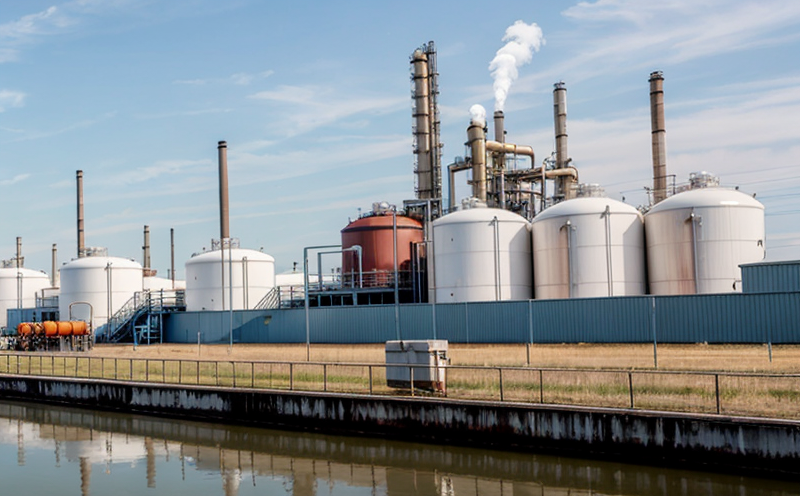GB T 19601 Residual Solvent Safety Testing in Pharma
The GB T 19601 standard is a pivotal guideline within China's pharmaceutical industry for ensuring the safety of residual solvents used during the manufacturing process. This standard addresses the critical need to identify and quantify volatile and semi-volatile organic compounds that may remain after extraction, purification, or synthesis steps in drug production.
Residual solvents can pose significant health risks if not controlled effectively, especially when they are present at levels above acceptable limits set by regulatory bodies. The GB T 19601 standard is designed to mitigate these risks by providing a structured approach to testing and monitoring residual solvents in pharmaceutical products.
The scope of this service involves the comprehensive analysis of various residual solvents, including but not limited to acetone, ethanol, methanol, and n-hexane. Our team utilizes state-of-the-art gas chromatography (GC) instrumentation for precise quantification of these compounds. The testing process begins with meticulous sample preparation, which includes dissolution or extraction techniques tailored to the specific solvent being analyzed.
After thorough analysis, we provide detailed reports that not only list the detected solvents but also specify their concentrations in parts per million (ppm). Our expertise lies in ensuring compliance with both national and international standards, such as GB T 19601 itself, as well as ISO guidelines on pharmaceutical quality assurance.
The importance of this service cannot be overstated, especially for companies operating under stringent regulatory frameworks. By adhering to the rigorous requirements outlined in GB T 19601, manufacturers can ensure that their products meet safety standards and are free from harmful residues, thus safeguarding public health.
In addition to meeting regulatory obligations, compliance with GB T 19601 also enhances a company's reputation for quality and reliability. This is particularly crucial in today’s competitive pharmaceutical market where consumer trust is paramount. Our laboratory offers not just technical expertise but also a commitment to excellence that aligns with the highest industry standards.
To fully appreciate the significance of this service, consider its application in real-world scenarios. For instance, during drug development, ensuring residual solvents are below acceptable limits can prevent potential contamination issues and ensure product integrity. In production environments, regular testing using GB T 19601 helps maintain consistent quality across batches.
Our approach goes beyond mere compliance; it encompasses proactive measures to identify and address any deviations from the standard early in the process. This preventive strategy minimizes the risk of costly recalls or withdrawals later on.
In summary, GB T 19601 residual solvent safety testing is an indispensable tool for pharmaceutical manufacturers committed to maintaining high standards of product quality and safety. By leveraging our advanced capabilities and adherence to this stringent standard, we help clients navigate complex regulatory landscapes with confidence and precision.
Applied Standards
| Standard | Description |
|---|---|
| GB T 19601 | Covering the safety testing of residual solvents in pharmaceuticals. |
| ISO 3664 | Gas Chromatography (GC) - Temperature Programmed GC Methods |
| ASTM E2879 | Safety, Health and Environmental Considerations for the Use of Solvents in Pharmaceutical Manufacturing
Eurolab Advantages
At Eurolab, our commitment to excellence is reflected in every aspect of our GB T 19601 residual solvent safety testing service. With a team of highly qualified scientists and engineers, we bring unparalleled expertise to the table, ensuring accurate and reliable results.
We employ cutting-edge gas chromatography (GC) instruments capable of detecting even trace amounts of residual solvents.
Our laboratories are equipped with ISO 17025 accredited facilities, guaranteeing consistent quality in our testing processes.
Our team adheres strictly to all relevant standards and guidelines, ensuring compliance with both domestic and international regulations.
We offer fast turnaround times without compromising on the thoroughness of our analyses.
In addition to these technical advantages, Eurolab prides itself on providing exceptional customer service. Our clients benefit from personalized consultation services, ensuring that their specific needs are addressed comprehensively throughout the testing process.
Our reputation for reliability and accuracy is built on years of experience and a relentless pursuit of excellence. By choosing Eurolab for your GB T 19601 residual solvent safety testing requirements, you can be assured of top-tier service that meets and exceeds industry expectations.
Environmental and Sustainability Contributions
Reducing the environmental impact by ensuring safe disposal practices for hazardous solvents.
Supporting sustainable manufacturing processes through rigorous quality control measures.
Promoting responsible use of resources in pharmaceutical production to minimize waste generation.
The meticulous testing and compliance with GB T 19601 contribute significantly to environmental conservation by preventing the release of harmful solvents into the environment. By adhering strictly to these standards, manufacturers can play a vital role in safeguarding public health while maintaining ecological balance.





